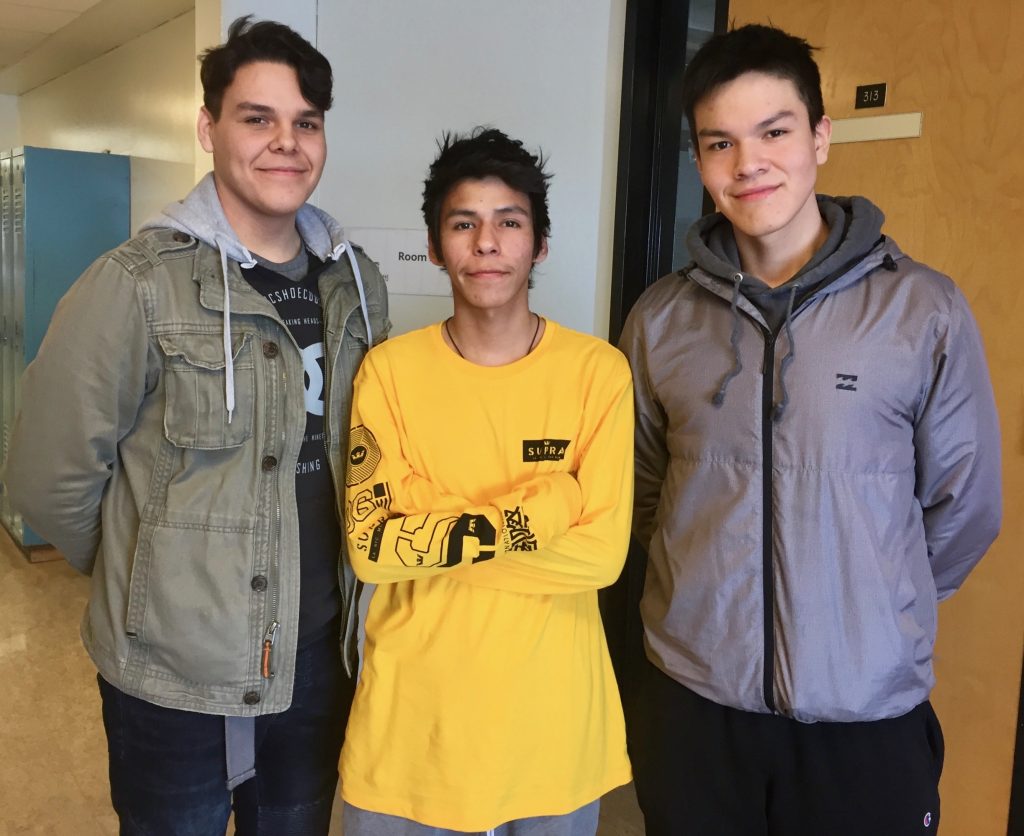
News
More than two dozen students begin First Nations Safety Officer program at Assiniboine
More than two dozen students from 14 First Nations communities, one-third of them female and some from more than 1,000 km north of Brandon, Man., began training on April 1, 2019, in the First Nations Safety Officer (FNSO) program at Assiniboine Community College.
April 8, 2019 By Donald Benham
 Students from the First Nations Safety Officer program at Assiniboine Community College
Students from the First Nations Safety Officer program at Assiniboine Community College Three of the students said they wanted to give back to their communities by helping to make them safer. Being from the community will help increase respect for the law, all three of them agreed.
When Kenneth Courchene was pulled over while driving in his home community of Sagkeeng First Nation, he was relieved to see it was a First Nations Safety Officer approaching his car.
“I felt more comfortable because I previously knew him. I didn’t feel as nervous as when you get somebody from the RCMP pulling you over – somebody you don’t know. That’s why I think this program is going to really work out and help a lot of First Nations people from all over,” Courchene said.
Bishop Ray Bighetty, from Nelson House, added, “there are pretty big issues where I’m from. There are drug issues. Alcohol issues. Violence issues. A bunch of things like that. I want to make it a better place, as much as I can.”
Drew Courchene was raised in Winnipeg, but Sagkeeng First Nation is his home community.
“In a way, I want to get back in touch with my traditional ways, through this job. The program is perfect, because I think communities feel more comfortable with actual members from the community that they know enforcing the laws and keeping them safe,” he said.
Assiniboine began offering provincially-approved mandatory training for First Nations and community safety officers in January 2016. More than 220 students have successfully completed this training since then.
Graduates of the program receive a certificate which allows them to be appointed as a First Nations Safety Officer.
The FNSO program also provides avenues for the specialized training of students in communities that face unique public safety needs, as well as offering the skills to provide proactive crime prevention strategies for use by graduates when returning home.
Once their three-week training program is complete, officers are responsible for crime prevention, enforcing band bylaws and some specific provincial laws.
FNSOs work closely with local law enforcement agencies throughout the province to enhance public safety in their communities.
Jack Ewatski, former chief of the Winnipeg Police Service, facilitates the program. Last year, Ewatski received an award for his work on the program from the Westman Chapter of the Interprovincial Association on Native Employment.
“The First Nations Safety Officer program has proven to be an effective addition to public safety services in First Nations communities throughout the province,” Ewatski said. “The training we provide gives the officers the knowledge and skills to perform their roles in assisting the police in their jurisdiction in creating and maintaining peace in the community.”
Print this page